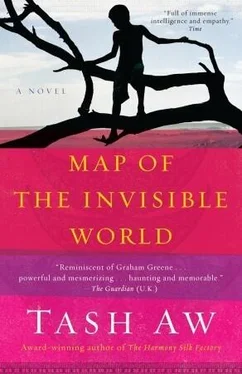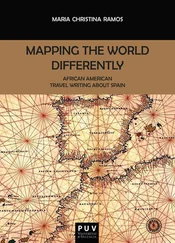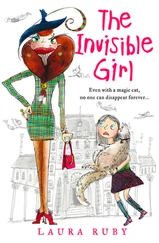Tash Aw - Map of the Invisible World
Здесь есть возможность читать онлайн «Tash Aw - Map of the Invisible World» — ознакомительный отрывок электронной книги совершенно бесплатно, а после прочтения отрывка купить полную версию. В некоторых случаях можно слушать аудио, скачать через торрент в формате fb2 и присутствует краткое содержание. Год выпуска: 2010, Издательство: Spiegel & Grau, Жанр: Современная проза, на английском языке. Описание произведения, (предисловие) а так же отзывы посетителей доступны на портале библиотеки ЛибКат.
- Название:Map of the Invisible World
- Автор:
- Издательство:Spiegel & Grau
- Жанр:
- Год:2010
- ISBN:нет данных
- Рейтинг книги:4 / 5. Голосов: 1
-
Избранное:Добавить в избранное
- Отзывы:
-
Ваша оценка:
- 80
- 1
- 2
- 3
- 4
- 5
Map of the Invisible World: краткое содержание, описание и аннотация
Предлагаем к чтению аннотацию, описание, краткое содержание или предисловие (зависит от того, что написал сам автор книги «Map of the Invisible World»). Если вы не нашли необходимую информацию о книге — напишите в комментариях, мы постараемся отыскать её.
comes an enthralling novel that evokes an exotic yet turbulent place and time—1960s Indonesia during President Sukarno’s drive to purge the country of its colonial past. A page-turning story,
follows the journeys of two brothers and an American woman who are indelibly marked by the past — and swept up in the tides of history.
Map of the Invisible World — читать онлайн ознакомительный отрывок
Ниже представлен текст книги, разбитый по страницам. Система сохранения места последней прочитанной страницы, позволяет с удобством читать онлайн бесплатно книгу «Map of the Invisible World», без необходимости каждый раз заново искать на чём Вы остановились. Поставьте закладку, и сможете в любой момент перейти на страницу, на которой закончили чтение.
Интервал:
Закладка:
“Do you know Hugo’s poem about the ladybug?” said Karl after a while. “It’s odd, but I woke up thinking of it the other day. It’s about a boy who wants to kiss a girl but he isn’t sure whether to do it — I read it when I was a boy myself. I don’t know why it has come back to me all of a sudden.”
“Why doesn’t he just go ahead and do it? It’s not one of those silly poetic things, is it?”
“He’s not sure. She offers him her neck and he thinks she loves him. But when he comes close he realizes that all she wants is for him to get rid of the ladybug on her neck. She didn’t really love him after all.”
“Poor boy. He has my deepest sympathy.”
“No, you mustn’t feel sorry for him, because at the end he sees that it is a good thing. The truth may be painful, but it’s better than an illusion. At least that’s what I remember. And I can see now that my love for Bali has been like that. This island — she hasn’t really loved me, has she? The longing is all one-sided. It’s because of you that I can see this.”
“I don’t understand.”
“Whenever I’m with you I see the Indies through your eyes, and it’s wonderful. It’s as if you’re truly a part of this place. It belongs to you and you to it. You don’t have to make any effort, yet you understand it completely. You view it all as a whole, not in parts as the rest of us do. You belong here. When I see that, I realize how I don’t.”
“No, I don’t. The only thing I really understand is that the color of your skin is the only thing that matters.” In the moonlight, her arm almost touching his, she saw that they were almost exactly the same shade of sandy gray.
“I wish I were like you,” Karl said, “but I can’t be. I’ll never have that ability. In the past few months I’ve thought about fleeing to some remote outer island where there are no other Europeans. I’d be like some character from one of those novels — you know, about seafaring Dutchmen who wash up on some shore and father children with a local woman. But I know I wouldn’t belong there either. And this is why I must return to Holland, even though I hate it. I must go and fight.”
“Then I’ll come with you,” said Margaret. “I’ll follow you to Europe.”
“That’s ridiculous,” he said in his calm, quiet manner. “You’re too young — what would you do? Where would you live?”
“With you.” Margaret tried to imagine the house he had described, a tall, narrow, dark house. “Or somewhere else. I’d just be close to you.”
He sighed. “You have the rest of your childhood to live, Margaret, the rest of your life. You know you can’t come. It’s impossible.”
The bird had changed its tune again, singing sweetly but very loudly, drowning out all other sounds in the night.
“Maybe someday we’ll wash up on the same shore,” said Margaret.
He laughed. “Maybe.”
She waited for him to say something else, but there was nothing but birdsong. They remained sitting on the steps for some time, looking at the dancing lights across the valley and listening to the solitary bird. Margaret could feel the warmth of his arm — almost, but not quite, touching hers, the fine hairs on his forearm tickling her skin; but she could feel him slipping away from her, easing himself out of her life. She felt the constrictions in her chest once more and tried to suppress the urge to cough. I am not in love with this man, she said to herself, I am not in love with him. She hoped that she would feel herself fall out of love with him, just as he was falling out of her world, but that sensation would not come to her.
After what seemed a very long time, Karl put his hand on hers. He said, “I shall never forget you, you know.” The bird was still singing. Margaret wished it would shut up and leave her alone in this moment with Karl, so that she could commit every detail to memory, where it would remain pure and untroubled for the rest of her life. The outline of his jaw in the moonlight. The damp coolness of his skin. The hesitation, maybe even a slight tremble in his voice.
But the bird did not stop. So nowadays, whenever Margaret recalls this moment of being thrust from the safety of childhood into the murkiness of adulthood, all she can hear is the bird’s insistent call, repeating endlessly.
28
T he orphanage was not far from the sea, and though you could sometimes hear the waves and smell the dry salty air, you could never see the water. Even if you climbed up on the small hill behind the orphanage — which you were not supposed to do — the ocean remained out of view. Therefore, for the first five years of his life, Adam never knew what color the sea was. Sometimes he thought it was turquoise, other times green, even a dull red. There was a sea called the Red Sea somewhere in the world, near where the Prophet once lived, so why couldn’t Adam’s sea be red too? The other boys laughed at him when he said this, so he kept quiet and did not speak about it. But now he remembers the first time he saw its true color, something between gray and brown: a mouse-colored sea. He remembers now that he saw it once. Only once.
29
W hen Adam woke up, Z was no longer there. Even as he reached out in half slumber to where she had been, he knew that he would not find her. He lay on the immense bed, blinking himself into awakeness, and found that he was stretched out diagonally, his toes touching the place where he had been sitting the night before. The patient ticking of the gold clock was the only noise he could hear; he could not quite make out the time, but he knew it was late, even though the room was dark, for the thinnest sliver of light was forcing its way over the top of the curtain rod.
He remembered that there was a room in the orphanage that had shutters on the windows, and when the shutters were closed the light would frame the window in thin strips, just as it was doing now. Adam had been taken to this room when he was ill — when he fainted or suffered those shivering fits. “That boy has gone funny again,” he remembered people saying, and he would feel sickly and ashamed, a freak.
Adam did not know why he could remember this detail of the orphanage, or how other images had returned to him, gently folding themselves into the spaces of his memory as if reclaiming some rightful, long-forgotten spot. And although there were many other things that remained beyond his reach — for now, at least — he felt calmer. When memories come back to you there is always the expectation that they will make you happy. Adam had always thought that regaining his past would be unequivocally joyous. Now, blinking in the daylight darkness of this room in a city hundreds of miles from his home, he could see that this was not the case. Sad memories remain longer than others. But sometimes the sadness makes things clearer, and with clarity comes a certain calm. This is what Adam felt.
The previous night, when images of his past life had begun to return to him, he had fallen into a heavy slumber as the pain in his torso dulled to an almost comforting numbness. He remembered Z kissing his forehead, remembered the cool touch of her lips on his brow when he had woken in the middle of the night. Shh, don’t worry, nothing’s going to hurt you, she had whispered. You’re all right, it’s just a bad dream. You’re okay, you’re okay. It had taken him a few moments to realize where he was, for when he opened his eyes there had been only darkness, and it was Zubaidah’s voice that helped him to locate himself in this absence of light.
My brother, he said. I remember.
Shh. Calm down. What do you remember?
Things. Not much. But I remember him now. How he walked, the sound of his voice. Johan. He was named Johan.
Читать дальшеИнтервал:
Закладка:
Похожие книги на «Map of the Invisible World»
Представляем Вашему вниманию похожие книги на «Map of the Invisible World» списком для выбора. Мы отобрали схожую по названию и смыслу литературу в надежде предоставить читателям больше вариантов отыскать новые, интересные, ещё непрочитанные произведения.
Обсуждение, отзывы о книге «Map of the Invisible World» и просто собственные мнения читателей. Оставьте ваши комментарии, напишите, что Вы думаете о произведении, его смысле или главных героях. Укажите что конкретно понравилось, а что нет, и почему Вы так считаете.












